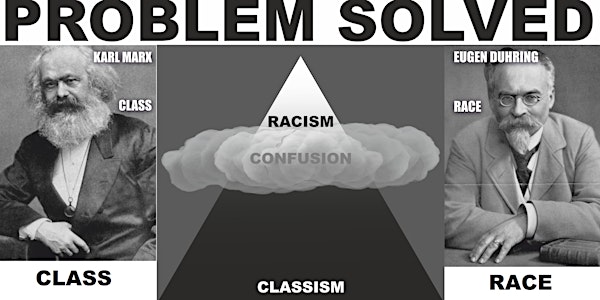

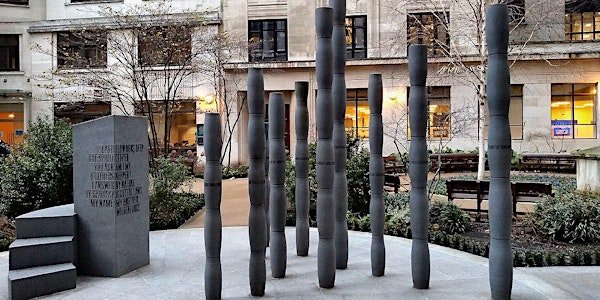
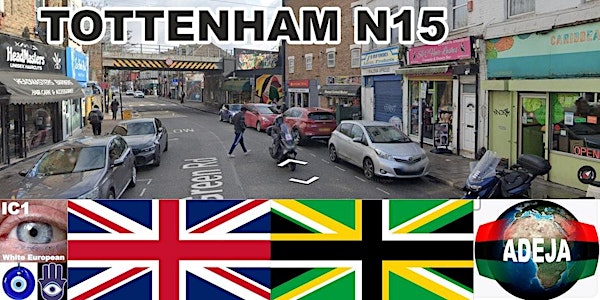
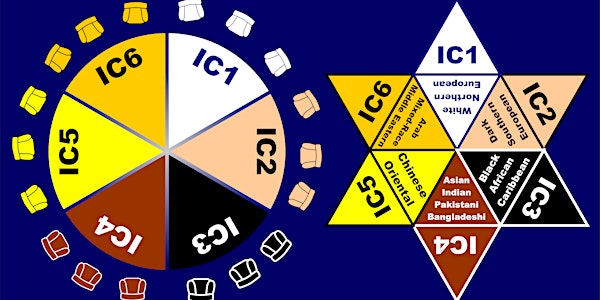
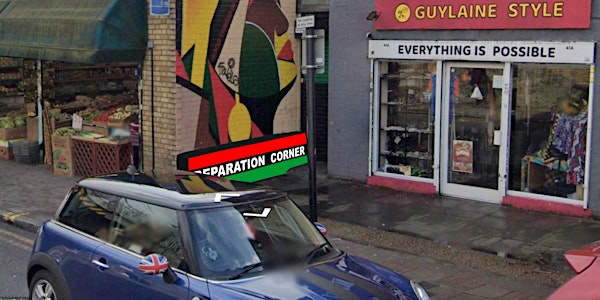
RACE AND CLASS - TOTTENHAM REPARATION CORNER - WORKING CLASS UNION OF CAIN
ADEJA's Reparation Corner: Navigating the Interplay of Race and Class Through the Tale of Cain and Abel - Sinful/Cursed Working Class.
Location
Tottenham
SEVEN SISTERS Tottenham N15 United KingdomAbout this event
ADEJA's Reparation Corner: Navigating the Interplay of Race and Class Through the Tale of Cain and Abel
In the vibrant community of Tottenham N15, a significant gathering takes place every week at "Reparation Corner," hosted by the African Diaspora Equity and Justice Alliance (ADEJA). Against the backdrop of the ADEJA Charter, the project team engages in crucial discussions that unravel the intricate dynamics between race and class, drawing inspiration from the timeless narrative of Cain and Abel.
The biblical Story of Cain and Abel has transcended centuries, leaving an indelible mark on cultural narratives. Many still believe, even to this day, that all workers are the descendants of Cain. The story goes that Cain made a sacrifice to God through the work of his hands, yet his offering was rejected. This narrative has been twisted over time, with some suggesting that the mark placed upon Cain was black skin, leading to the troubling belief that all Black people descend from Cain and should accept their fate as perpetual slaves.
At Reparation Corner, the ADEJA project team addresses these misconceptions head-on, recognizing the historical weight carried by such distorted interpretations. The space serves as a forum for open dialogue, dispelling myths that perpetuate harmful stereotypes and challenging the deeply rooted biases associated with race and class.
The weekly meetings aim to explore the complex relationship between the importance of race and class in society. ADEJA rejects the notion that anyone should be relegated to a predetermined fate based on outdated beliefs. Instead, the initiative advocates for the empowerment, unity, and pursuit of historical reparatory justice for Black Africans, the Black African diaspora, and the Mixed-Black diaspora.
The ADEJA Charter, inspired by a commitment to evidence-based claims and holistic betterment, stands as a testament to the project team's dedication to dismantling systemic inequities. The narrative of Cain and Abel serves as a backdrop against which attendees can critically examine the roots of societal biases and confront the harmful ideologies perpetuated through generations.
As participants gather at Reparation Corner, the ADEJA project team encourages conversations that transcend the limitations imposed by historical misinterpretations. The initiative promotes identity recognition based on aspects such as place of birth, lineage, appearance, state of mind, habits, and DNA, emphasizing the multifaceted nature of human identity.
ADEJA's Reparation Corner becomes a crucible for enlightenment, fostering an environment where individuals can question, learn, and challenge preconceived notions about race and class. By hosting these meetings, ADEJA envisions a future where the importance of race and class is not a divisive factor but a harmonious interplay that contributes to shared prosperity and empowerment.
As the weekly discussions unfold, Reparation Corner becomes a beacon of hope and transformation, challenging the narrative of predetermined destinies and guiding the way toward a more just and equitable society. In the spirit of ADEJA's mission, these gatherings pave the way for a future where melanated justice prevails, unburdened by the weight of distorted historical narratives.